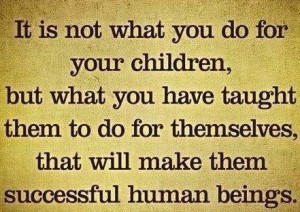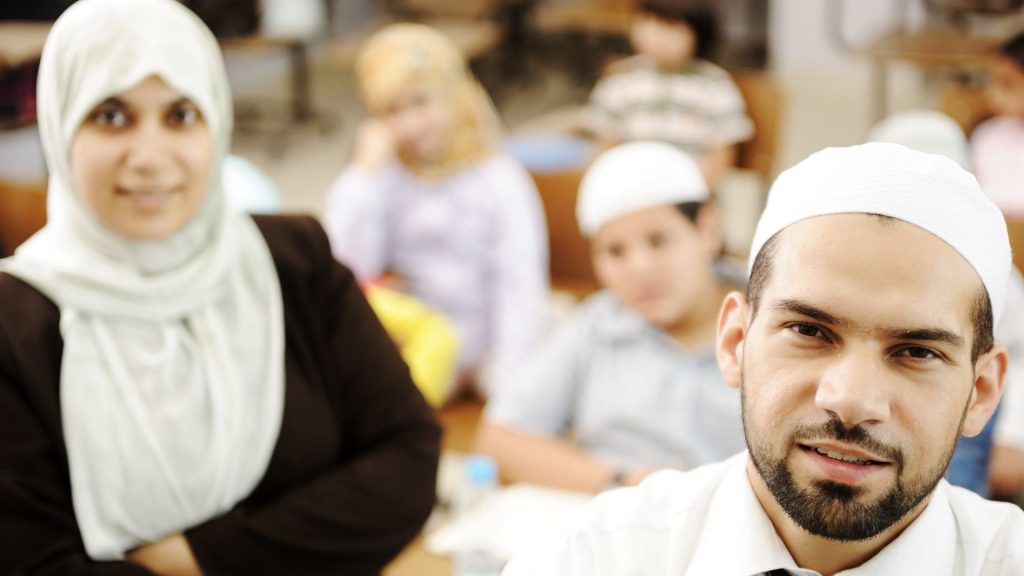Obviously, this only bodes well with our religion when a child keeps within fields of interests that do not come close to the haram.
Besides that, allowing a child to explore his or her interests from a young age helps them engage with their passions and develop self-motivation for learning, opening doors of opportunity on the long run.
On a related note, job markets are changing so rapidly with the times that disciplines that were extremely important 20 years ago may not even be relevant today.
Today’s iPhone, in fact, is probably tomorrow’s dinosaur.
So, Ali bin Abu Talib’s advice of educating our children based on their current needs and not ours, is rather apt.
We come from different generations. While parents can share wisdom and experience, what children are learning and need to learn differs greatly from the expertise of the past.
And of course, knowledge is always evolving. Really, it would be detrimental for parents to impose their ideals without considering the contemporary issues that are present in today’s educational environment.
There are now plenty more avenues for young adults to earn a living and build a career, and it pays for parents to honor that.
In many respects, we really just need to give them wings to fly, after implementing confident roots.
Teaching the Right Things: Balancing Between Dunya and Deen
Education for Muslims looks beyond “secular education.”
In fact, deen should come before dunya. Unfortunately, some families often feel to cowed into their fears of living in the now, that they only impart survival skills for this world – ie, through means of garnering an income, and in some cases, to provide for their parents when they are older.

However, for many of the youth, Islamic education can sometimes turn into a subset of their lives, just like Islamic studies is a “subject” at many Islamic schools or schools in Muslim majority countries.
What parents need to work on is encouraging Islamic beliefs to intertwine cohesively with daily living, as learning how to be a good Muslim cannot be fished out of an Islamic textbook.
Muslims, in fact, need to emulate the Prophet’s character and be the “Qur’an in motion,” as coined by the Prophet’s beloved wife Aisha Abu Bakr.
Instead of constantly impressing what is halal and what is haram (and sometimes getting this wrong and mixed up with cultural beliefs), parents need to educate children on who Allah really is.
Why He decided to honor and create us (hence molding our higher purpose in life); building aqeedah and how it applies; why we pray; what Ramadan really means; why we go on Hajj; and how those rituals honor the wonderful family who “founded” Islam; why girls wear hijab; and the list goes on.
That way, when children venture out into the secular world, they are able to carry the values of their deen with them.

And if the Qur’an has a strong presence in their hearts, it doesn’t matter which halal routes they choose to go down; in their best efforts, they will continue to ask for guidance from Allah and not deviate from their deen.
Keeping Relevant, Keeping Human
Children of today are flooded by information from multiple sources, and it’s not uncommon for parents to put a cap on such floodgates, such as the television, magazines, and even the internet. I would even say it’s commendable to do so.
But while building a strong aqeedah for our children, the reality is that they will also be exposed to the Big Bad World, and we have to not only be there for them (in a composure that is not flanked with prejudice or judgement), but we also have to keep relevant in their lives.
It starts at a young age, really. Children below the age of seven are to be played with, entertained, and had fun with.
If we are inattentive towards them from a young age, it is highly likely that we will encounter difficulties when it is our obligation to teach them during the short time frame of 7 to 14 years.
And by the time they hit adulthood and spread their wings, they won’t have second thoughts of leaving the nest, if not physically – again, emotionally.
Keeping relevant to children assures that we understand the hardships that they are going through, and – we, as parents – are ready to stand by them.
It is not only about staying relevant, but also a reminder to ourselves and our children that we are also human and make mistakes.
In fact, there is no better combo (besides spouses) than a parent-child duo, to help remind each other of their deen.
Sharing stories of our own childhoods, challenges, and how we overcame them, or even the mistakes we made, will encourage children to open up to us rather than feel obliged to obey just because “dad said so.”
All this can be done in a delicate balance without eschewing the role of a parent.
After all, parents in Islam still deserve the honour and respect, and in two words: THE BEST.
This can only be done if we educate our children properly. Not as dictators, but also not as doormats.
An easy ticket for our children to attain Jannah is for them to give us THE BEST, but we really need to give them our best beforehand.
Children are blessings like no other, and can elevate us through Jannah, if we strive for Jannah ourselves and provide them the best education from a young age.
There is more to parenting than expectations, reprimands, authority and the expectation of our rights to be fulfilled.
Children are human beings too, and we need to find a balance between the rights and responsibilities of both as and while they are growing up—without imposing ideals that could drive them away from the nest, even before they learn how to fly.
***
The article is from the archive.
Having questions about parenting? Write to us here:
Pages: 1 2
